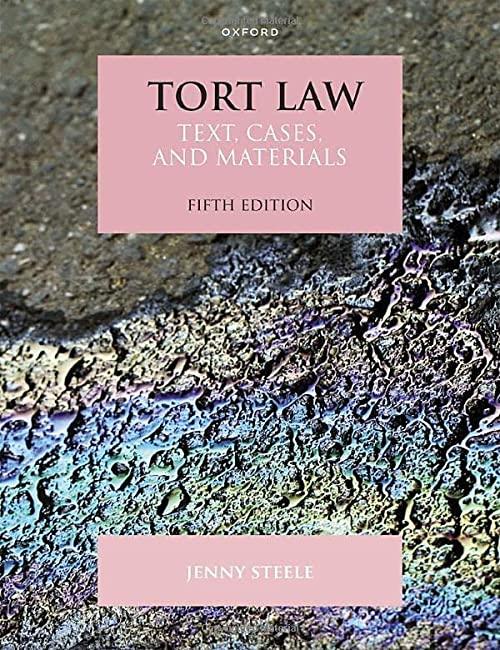Question
Alice is an avid player of board games and is founder and managing director of the League of Serious Gamers Pty Ltd (LSG). Every year
Alice is an avid player of board games and is founder and managing director of the League of Serious Gamers Pty Ltd (LSG). Every year Alice travels to London to attend the International Convention of Board Game Players where she mixes with fellow enthusiasts, see the many displays and experiences different board games. She usually returns with new or collector board games that she has purchased and which she, then, on-sells at a profit to her customers as part of LSG's inventory. LSG also publish a free newsletter highlighting news items on board games and products. This newsletter goes to members who are part of the LSG's customer loyalty program.
This year Alice bought an ornate chess set which, she was told by the seller, was once owned by Emperor Franz Joseph of the Astro-Hungarian Empire. Alice placed the following entry in the latest edition of the newsletter:
Gamers, a special and rare find this time! Emperor Franz Joseph's chess board and pieces. $25,000 for this piece of history.
Preston Posh is a wealthy collector of rare historical pieces. He was in the bedroom of his son, Peter, a member of LSG's customer loyalty program, giving some advice to him about doing an MBA. After speaking to Peter, he noticed the LSG newsletter on his desk, which had been opened at the advertisement section, and saw the entry about the chess set. Preston knew that the Franz Joseph chess set was a much sought after historical piece. However, he thought that the chess set was in the collection of an American buyer, and in any event would be worth more than $25,000. Nevertheless, he knew that it would make his business rival and fellow antique collector, Rooney Rabid, green with envy when Preston showed the set off as part of his collection. Preston quickly wrote down the phone number from the advertisement, arranged to meet Alice, inspected the chess set and paid her the money.
Preston decided to host a grand evening party to which he invited other well-known collectors of historical pieces. His crowning moment was when he led Rooney Rabid over to show him the Franz Joseph chess set. However, his moment of triumph was destroyed when Rooney loudly proclaimed to Preston and the assembled audience:
"Oh, my dear Preston! Have you checked this out properly? That's not the Franz Joseph chess set. I am currently the owner of the Franz Joseph chess set and have the authentication documents to prove it!Where did you get this... some backstreet bazaar?"
The evening party ended in a humiliating farce for Preston. Sitting alone after everybody had left, he suddenly felt a fit of anger rise and picked up the chess set and flung it against the wall. As a result, the chess board was cracked, and several chess pieces were badly chipped beyond repair.
Preston reached for his phone and rang Alice. He blamed her for his humiliation and demanded his money back.
Advise Alice on her legal position with regards to the contract made with Preston and whether he (Preston) could demand his money back (you may also assume that Rooney did own the true Franz Joseph chess set).
- Identification of issues.
- Identification of the source of the law on each issue: case law, statute.
- Accurate explanation or justification of the relevant law on each issue.
- Application of the relevant law to each issue.
- Presentation and organisation of work in a logical and grammatically correct manner.
- Please note that theanswers need to be based on Contract Law. There isno requirementto discuss any company law element.
- [NB: Answers must be based on Australian laws.Any answers that arebasedon laws from another country or jurisdiction will attract a fail markunless they are used as a comparison or to extrapolate perspectives from another legal jurisdiction with Australian laws. The exception is English law as the approach of the Australian courts tend to reflect the English position - this is only in relation to using the legal principles and not specifically discussing English legislation unless it is for a comparative purpose]
- analyse and apply a range of legal concepts relating to corporate (including an understanding of the business structures of trusts and joint ventures) and/or contract law, drawing both from common law and statute law
- apply critical thinking and analytical skills when applying legal concepts and principles in the conduct of businesses and entrepreneurial activities
- construct coherent and logical legal arguments and communicate them effectively.
Step by Step Solution
There are 3 Steps involved in it
Step: 1

Get Instant Access to Expert-Tailored Solutions
See step-by-step solutions with expert insights and AI powered tools for academic success
Step: 2

Step: 3

Ace Your Homework with AI
Get the answers you need in no time with our AI-driven, step-by-step assistance
Get Started


